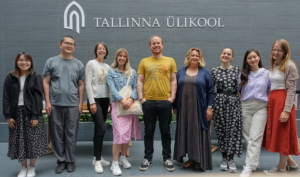Non-Degree / Dates: 29 July - 2 August 2024
Innovation and collaboration give power to education, they build premises for its successful present & future and impact the schools, families, communities.
Day 1: We will illustrate the Estonian educational system, exploring state-level strategies and future directions. Participants will engage in group work to share their countries’ educational landscapes, discuss their motivations for joining the course, and the expected outcomes. The day concludes with a comparative analysis of educational systems, identifying key changes and trends.
Day 2: Unpacking core concepts, theories and practices of pedagogy, educational innovation and change management.
Day 3: Exploring digital tools such as Avastusrada, and STEAM.
Day 4: We will visit an Estonian school and meet the principal or teachers there to hear firsthand insights from them. A reflection workshop will be held about the visits.
Day 5: Participants design and present solutions for the specific educational challenges they would like to work on.
Please note that some components of the program can be modified to ensure more relevant experience for all participants.
Why this course?
Teacher(s)
Kadri Mettis has graduated from the Science teacher Master’s program for gymnasium level at Tartu University. Currently, she is working as a junior researcher in the School of Digital Technologies and she earned her doctoral degree in “Designing And Implementing Meaningful Mobile Outdoor Learning In Science Education”. Kadri has 10 years of experience as a teacher in different schools and informal education institutions.
Salome Khurtsidze works as a junior researcher at the School of Educational Sciences and coordinates the international study programme at Tallinn University. She holds a Master’s degree in Education Administration from Ilia State University in Tbilisi, Georgia and she completed Educational Innovation and Leadership MA programme at Tallinn University, Estonia. Salome has worked as a researcher, youth worker, and has the experience of leading and contributing to a variety of projects in the NGOs, start-ups and international organizations.
Timetable
Course sessions take place for one week, from Monday to Friday, 10:00-16:00. Break times will be determined in consultation with the participants.
Participants
The course is intended for a diverse group of participants, including teachers, educators, youth leaders and anyone who has a keen interest in education. It is designed for individuals at all levels of academic degree (undergraduate, graduate or recent graduates), from any field of study or professional background. Our course fits both, professionals or enthusiasts across various disciplines.
The course is for minimum 6, maximum 20 participants.
Credit points
2 ECTS
Upon full participation and completion of course work students will be awarded 2 ECTS points and a certificate of completion.
Course fee
| Early-Bird Course Fee (until 31 March 2024) | 350€ |
| Regular Course Fee (after 31 March 2024) | 400€ |
NB! Accommodation, cultural programme and meals are not included in the price.


